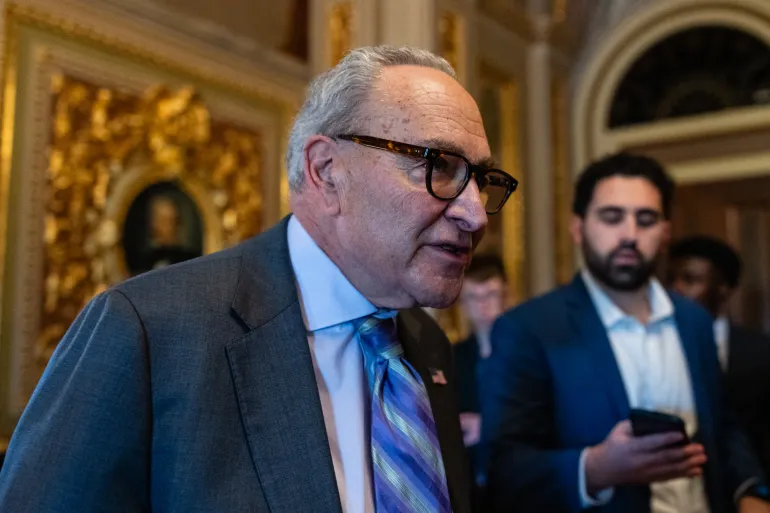
The federal government shutdown in the United States came to a halt on Wednesday when the Senate passed a stop-gap funding measure, yet the deal has sparked a fierce revolt within the Democratic Party and placed Senate Minority Leader Chuck Schumer’s leadership in jeopardy.
The Senate approved the resolution after eight Democratic senators broke ranks to join Republicans in voting for the measure, which funds federal operations through the end of January but omits immediate extensions of crucial health-insurance subsidies under the Affordable Care Act (ACA). Many progressive Democrats view the outcome as a betrayal of the party’s platform and are openly demanding new leadership.
Deal Closes Shutdown, But Leaves Major Gaps
The newly signed bill ends what became the longest government shutdown in US history, reinstating pay for hundreds of thousands of federal employees and restoring funding to key programmes such as food assistance and air-traffic control. However, the deal does not extend the ACA premium tax credits that benefit more than 20 million Americans a central Democratic demand. The legislation postpones that vote to December and offers no guarantee of passage.
Supporters of the deal argue it prevents further disruption to essential services and federal workers. Critics counter that sacrificing health-care concessions undermines Democrats’ commitment to working-class Americans and sows deep discord within the party.
Schumer’s Leadership Facing a Reckoning
Although Chuck Schumer opposed this particular funding bill on the Senate floor, his leadership is nonetheless under assault as critics say he failed to keep his caucus united. Top progressives labelled him “no longer effective” and called for his immediate removal. Some senators and representatives privately blame Schumer for sanctioning the underlying strategy that permitted defectors, thereby relinquishing the high-ground on health care and party discipline.
READ ALSO: US House Passes Bill to End 43-Day Shutdown With Historic Vote
Schumer retains his Senate seat through 2028 and cannot be removed until a leadership election following the 2026 mid-term elections. Yet the burgeoning revolt highlights a widening trust gap between the Democratic establishment and its left wing raising serious questions about unity ahead of the crucial 2026 cycle.




